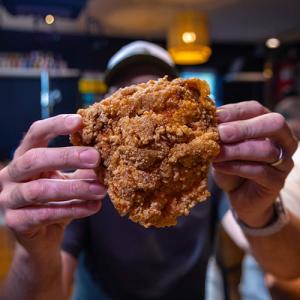Fostering diversity in STEM: ROADS and MSL projects
Amanda Figueroa, Yanira Pacheco Ortiz, Adi Espindola and Madeline Zent discuss their efforts within the Tacoma community to encourage diversity in and provide resources for those interested in STEM from a young age.
During our February Collaboratory drive, we were able to connect with various project leaders and coordinators within our community. In doing so, we reached out to Amanda Figueroa, the Senior Director of Student Transitions Programs at UW Tacoma along with some of her team members to discuss their work on the ROADS on Asteroids NASA challenge as well as the Math-Science-Leadership (MSL) Program.
Yanira Pacheco Ortiz, coordinator for first generation student initiatives, Adi Espindola, the pathway to promise program specialist and Madeline Zent, assistant event coordinator for MSL and ROADS met with us to discuss these programs in more depth and to share their goals.
Amanda Figueroa provided some context surrounding the ways in which this current project arose. She was able to connect with the Northwest Earth and Space Sciences Pipeline staff at a Washington Science, Technology, Engineering and Mathematics conference a few years back due to their previous collaboration with the Society for the Advancement of Hispanics/Chicanos and Native Americans in Science.
This connection enabled Figueroa to partner with NESSP again in outreach efforts targeted towards Tacoma youth and science, technology, engineering and mathematics (STEM) programs for diverse communities.
The ROADS project hosts students from vast age ranges and backgrounds to form teams to compete in a simulation program of design, development and execution of drone missions to the asteroid belt. They became involved during the 2020 competition and Figueroa said they have been able to continue their work due to the support from the Tacoma community.
“In 2020 we worked with our partners to host ROADs on Mars, and now the current ROADs on Asteroids,” said Figueroa. “It turned out that educators and youth in the Tacoma community wanted more experiences like this and Dr. Winglee in NESSP continued to write grants and work with the STEAM network about what support was needed to ensure diverse youth could engage in the challenges.”
Being their second year working on ROADS, the program has looked a bit different due to COVID-19. Espindola and Zent, who both work on outreach and recruitment, noted they had to be more tactful with their planning and intentions. Despite the virtual aspect of this year’s challenge, the two worked to ensure that participating students will leave the challenge with the knowledge and resources to carry forth into a future STEM career they normally would.
One of their biggest goals focuses on the encouragement of diversity in STEM, including low income places or schools with more students of color. Despite the hardships caused by COVID, they have learned to adapt, look at their work from a new angle and foster creativity. As educators and teachers, this experience has allowed them to adopt new skills they can use in the future.
As Zent pointed out, they have seen this year as a success. “We were able to impact 400 students with only nine coaches!” she said.
While not every team involved necessarily competes in the challenge, Espindola noted that the youth not participating still has access to utilize the resources provided to further their education and excel their career, as well as interest, in STEM.
“Giving the students at an early age the resources, the projects, the hands-on experiences and essentially, this is in hopes to inspire youth and family to explore futures in STEM,” she said. “Essentially, this is, you know, the main goal. To continue improving educators to engage in these kinds of projects, essentially, we want to get these resources, and services out.”
In the same realm of resource availability, hands-on experience and inspiring families to pursue careers in STEM, they also hold a three week summer camp focused on programming and curriculum at UW Tacoma. This MSL program, established in 2013, is currently operating remotely as well.
It occurs annually and focuses on a different theme each year to provide new skill sets and opportunities, the main goal is essentially the same of that as the NASA project, “which is to continue inspiring and motivating families to pursue careers in STEM,” said Espindola.
Last year the subject of study was centered on food and social justice. The students were able to work in the Giving Garden and learn about composting and aquaculture. When this three week period ends, throughout the rest of the year there is a curriculum that continues to extend the learning experience.
With each of these programs presented, the community partners cultivate and expand. As Espindola notes, she believes that these partnerships will continue to engage and proselytize the ideas that MSL brings to the community.
“[The community partners] have seen, and they have testimonies as well, of how these programs have impacted their students or how these programs have impacted the families,” she said. “The teachers are building their knowledge to continue striving to get students interested in the STEM career field, so they know that mission and that vision.”
And as Ortiz notes, despite the complications of COVID and the inability to engage in person, she has learned that the partnerships act as a network to provide a space where they share their efforts, work together as a community and learn from each other.
To end the discussion, Espindola points to the main goal they, and their partners, share to connect and engage the community:
“At the end of the day the work that we do is for our families and our students … That passion that we all carry inside us to continue seeing a change in this world … I think when we all unite together we're breaking barriers, and I think that's the beautiful part of having so many different partnerships.”



